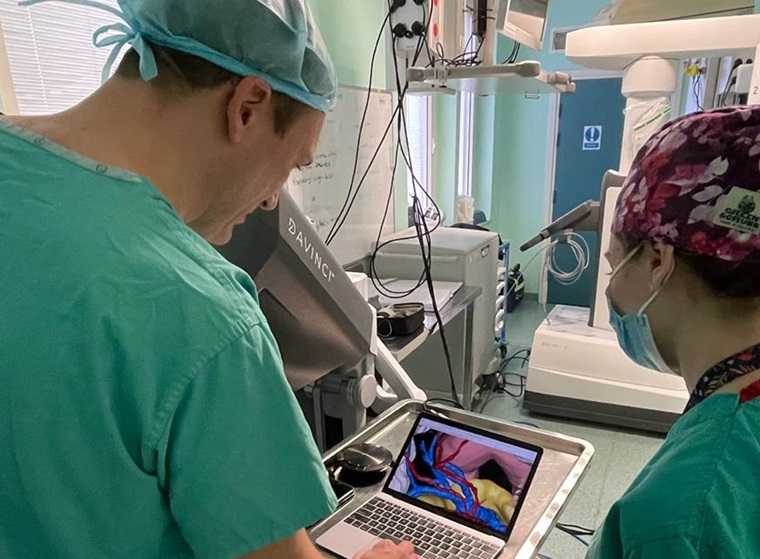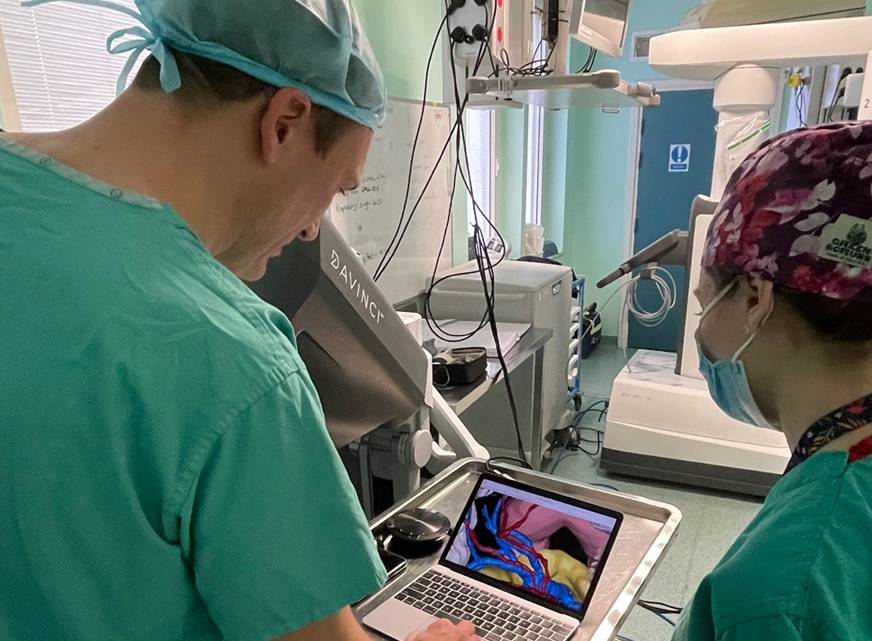About a CME procedure
The procedure is typically performed under general anaesthesia, and it can be performed with minimally-invasive surgery. Robotic surgery increases the precision and allows the surgeon to see anatomical structures more clearly. The surgeon carefully dissects a part of the colon and the associated mesocolon, taking care to preserve important blood vessels supplying the remaining parts of the intestines. Once the colon has been removed, the surgeon will reattach the remaining parts of the colon. There is no need for a stoma bag.
This type of surgery is significantly different than traditional colon surgery where much less of the mesocolon is removed and the risks of leaving cancer cells behind is higher.
Benefits compared to standard colon surgery
Studies have found that patients who undergo CME have a lower risk of cancer recurrence and a higher overall survival rate compared to those who undergo traditional colon cancer surgery.
Although some of the results are still debated, there is an increasing body of evidence that cancer outcomes are better, especially for the more advanced, stage III cancers.
Safety is another key factor, and experienced units can demonstrate no increased complication rates or recovery time than in traditional colon resections.
Surgical experience is paramount
CME is not easy surgery and should be performed by someone with a lot of experience. Especially as the anatomy of the blood vessels can vary from patient to patient and make surgery more challenging in some cases.
The operation needs to be planned carefully and the use of 3D reconstructions of CT scans to guide the surgeon during the procedure can be a useful adjunct.
If you are considering CME for colon cancer, it’s important to talk to your healthcare provider about the risks and benefits of the procedure. Our consultants at CRSC are some of the world’s most renowned CME specialists. Whether you’re looking to book an appointment, or just want to find out more, please don’t hesitate to get in touch.
Book an appointment
To book a consultation with The Colorectal & Robotic Surgery Centre, you can phone, email or use our “contact us” form.
Email: crsc@hcahealthcare.co.uk
Call: +44 20 3214 3440

